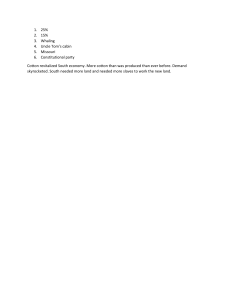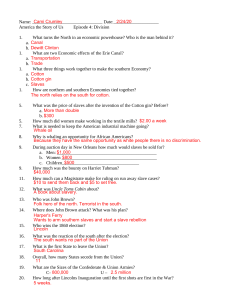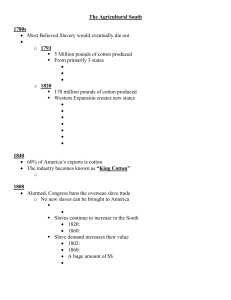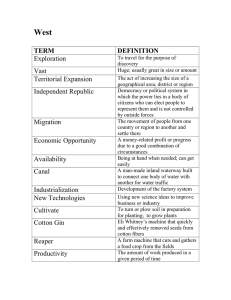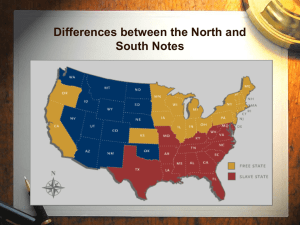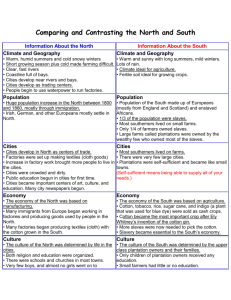Key Historical Terms: Mercantilism to Temperance
advertisement
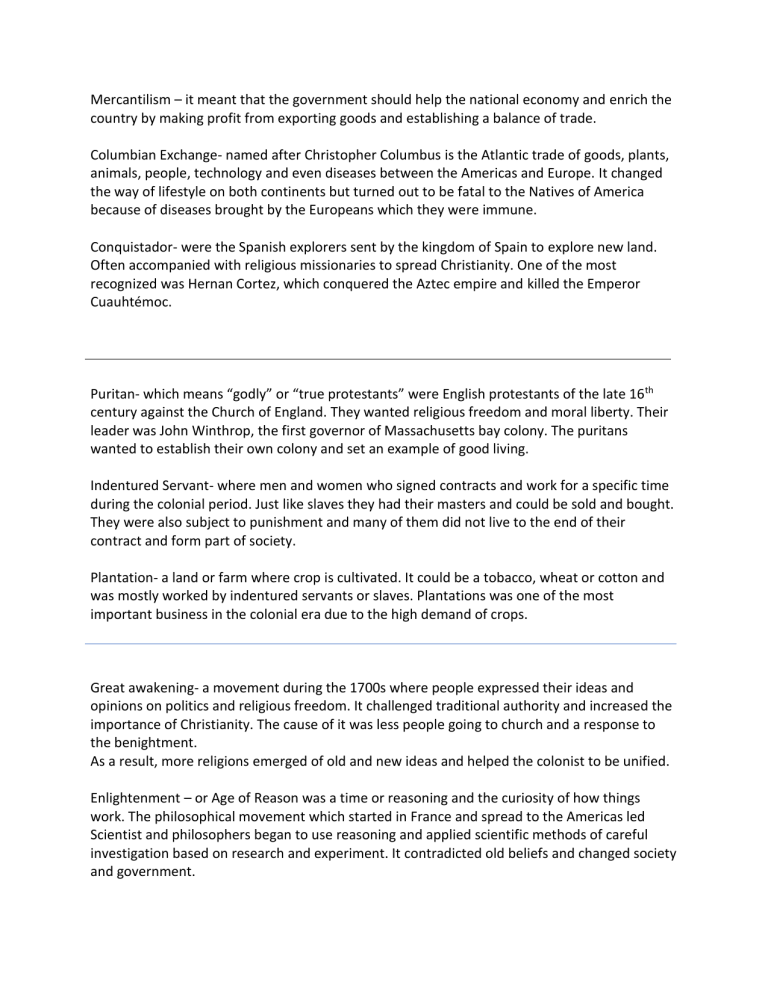
Mercantilism – it meant that the government should help the national economy and enrich the country by making profit from exporting goods and establishing a balance of trade. Columbian Exchange- named after Christopher Columbus is the Atlantic trade of goods, plants, animals, people, technology and even diseases between the Americas and Europe. It changed the way of lifestyle on both continents but turned out to be fatal to the Natives of America because of diseases brought by the Europeans which they were immune. Conquistador- were the Spanish explorers sent by the kingdom of Spain to explore new land. Often accompanied with religious missionaries to spread Christianity. One of the most recognized was Hernan Cortez, which conquered the Aztec empire and killed the Emperor Cuauhtémoc. Puritan- which means “godly” or “true protestants” were English protestants of the late 16 th century against the Church of England. They wanted religious freedom and moral liberty. Their leader was John Winthrop, the first governor of Massachusetts bay colony. The puritans wanted to establish their own colony and set an example of good living. Indentured Servant- where men and women who signed contracts and work for a specific time during the colonial period. Just like slaves they had their masters and could be sold and bought. They were also subject to punishment and many of them did not live to the end of their contract and form part of society. Plantation- a land or farm where crop is cultivated. It could be a tobacco, wheat or cotton and was mostly worked by indentured servants or slaves. Plantations was one of the most important business in the colonial era due to the high demand of crops. Great awakening- a movement during the 1700s where people expressed their ideas and opinions on politics and religious freedom. It challenged traditional authority and increased the importance of Christianity. The cause of it was less people going to church and a response to the benightment. As a result, more religions emerged of old and new ideas and helped the colonist to be unified. Enlightenment – or Age of Reason was a time or reasoning and the curiosity of how things work. The philosophical movement which started in France and spread to the Americas led Scientist and philosophers began to use reasoning and applied scientific methods of careful investigation based on research and experiment. It contradicted old beliefs and changed society and government. Erie canal- one the most important canals of the early 1800s. it helped farmers transport their crops by a cheap cost and sell faster because it stretched from buffalo to Albany, New York., connecting the great lakes to the east coast. It helped New York to be the largest port in the united states. Cotton gin- invented by Eli Whitney in 1793 a machine that separates the seeds from the cotton. It was thought that the cotton gin would decrease the labor of slaves but on the contrary cotton became more profitable and the demand for slaves and their labor increased. Considered one of the first inventions that led the industrialization. Temperance- a movement and later a society by religious people that believed drinking was a sin. They tried to eradicate alcohol from the people. An occasional drinker was treated the same as someone who was always drinking. The movement eventually helped to reduce the consumption of alcohol.
